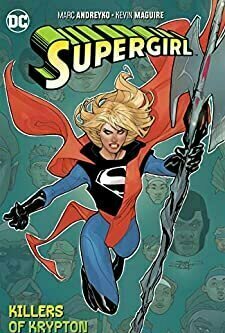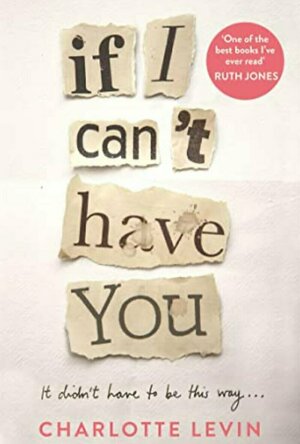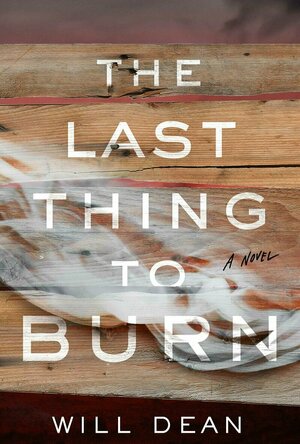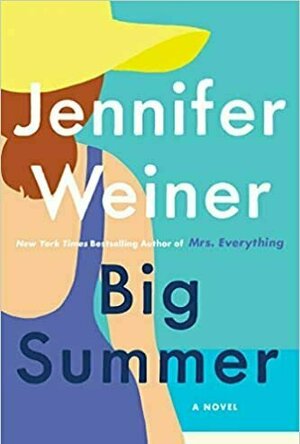
Dental Appointment Manager - Schedule Appointments
Medical and Business
App
All professional, well-run dental offices provide their patients with exceptional quality and an...
Shelle Perry (66 KP) rated Zombies for Everyone: A Jenna Sutton Supernatural Cozy Mystery in Books
Aug 10, 2021
In this book we are introduced to Jenna and her partner Kieron, high school students with a little something extra. She is a Hunter. Her job is to investigate and hunt down things that go bump in the night. Kind of a cross between Dean Winchester and Buffy Summers. Kieron provides moral, tech, and info support. They are asked to track down the source of a zombie bite before it leads to a full-on outbreak. It becomes apparent that there is more going on than a simple zombie attack and with several great suspects, it moves at a fair clip.
Despite the extracurriculars they really are just typical seventeen-year-old kids worrying about dating, homework, and mean girls. That is a fun contrast to the uber adult nature of the work they do. Jenna’s mother is missing, presumed dead (a story point that I am certain will be prominent in upcoming books) Leaving Jenna with the job of caring for herself while staying under the radar of adults who would put her in the system.
The magic world built for this story is sound, though it will need some bolstering ahead as it went up fairly quickly. I think another 50 pages of story could have easily softened the info dump feel. There is a lot of information to process about magic and recurring characters, as well as The Consortium and The Covens, but at some point in this series, things are going to get really interesting and my sixth sense is tingling in anticipation. This is a great story for age 12-18 readers and really for anyone who enjoys YA and/or paranormal cozy.
⭐⭐⭐⭐
Rating: 4 out of 5.
I received an advance review copy for free through Great Escapes Virtual Book Tours, and I am leaving this review voluntarily
LoganCrews (2861 KP) rated The Hunger Games (2012) in Movies
Sep 20, 2020 (Updated Nov 26, 2020)
Joe Goodhart (27 KP) rated Supergirl (2016-) Vol. 1: The Killers of Krypton in Books
Nov 30, 2020
The story follows up on the tail end of MAN OF STEEL (which, as I said in my review, exceeded my low expectations, helping to have faith anew in Brian Michael Bendis). She says goodbye to her cousin, Kal-El, as she heads to space to follow the trail of Rogol Zaar, and to determine if he was not lying when he claimed to have destroyed Krypton. Best of all, she won't be alone: Krypto will be along for the journey! And what a journey it is!
Some questions are answered, but new ones are generated, as a conspiracy within the Guardians of Oa! There's a lot more to it than just that, but I like my reviews, like my initial readings, to be Spoiler-Free! You'll have to read it for yourself, and I am certain that, like myself, you will not be disappointed!
And speaking of "not being disappointed", let me talk a bit about the equally enjoyable art. The majority of this volume was drawn by Kevin Maguire (who I adored here, as much as his work in the 80s on JUSTICE LEAGUE INTERNATIONAL), but he was also support the likes of Emanuela Lupacchino, Evan "Doc" Shaner, Lan, Medina and a bit of Karl Kesel, too! All involved were totally on their game, turning in art that remained consistent with Maguire's style, so as not to derail the story. Everyone deserves a big, hearty round of applause!
However, there was one thing in it that caused me to give it four Stars, not five. And, that, unfortunately, would be Dan Jurgens' Christmas-themed story. While the message was truly heartfelt and appreciated, the actual dialogue, as well as the story itself, was just not as good as I recall Jurgens being. And that's a damned shame, because some of my best Superman memories involve his stories from the 90s! Ah, memories!
And, that my friends, is a wrap! I hope you will check this one out, as it is the probably one of the best Supergirl stories in far too long! I truly hope DC treats Marc Andreyko right, because he is all aces!
ClareR (6101 KP) rated If I Can’t Have You in Books
Dec 5, 2020
I think the character of Edward, an elderly man who lives over the road from Samuel, is in part the father figure that she needs and never had. He needs her too. I think things could have been far worse for Constance if she hadn’t have had Edward to consider. Edward is the device that shows Constance is a caring person underneath the obsession. She makes time in her day to care for and visit him. Like the other two men, he is a broken soul - but his obsessive behaviour doesn’t translate in to being careless with people. Instead he is a hoarder of strange knick-knacks. Edward adds an element of humour as well - his relationship with Constance is lovely.
I found it hard NOT to put myself in Constance’s shoes. After all, isn’t that what we as readers do with the characters we read about? How easy would i be to slip from loneliness in to obsession? I hope I never find out, but it’s so well portrayed in this book. This is a supremely uncomfortable book in parts - Constance is used and abused, and she in turn can have some pretty unpleasant thoughts. But perhaps that’s because she doesn’t have someone to really confide in?
I can’t actually believe that this is a debut, and I will definitely be looking out for whatever comes next from Charlotte Levin.
Many thanks to The Pigeonhole for serialising this and to Charlotte for joining in with the chat in the margins!
BookInspector (124 KP) rated The Last Thing To Burn in Books
Jan 26, 2021
The narrative of this book is very well written and entwined with present and past lives, that Jane had. During her daily routine, she shares how she ended up where she is. Her feelings and thoughts are painful to read. She keeps clinging to anything to survive, and it is devastating. This book really made me think, what I would do in Jane’s situation? How would I try to survive… I really wanted to know, how Jane will escape all this, that is what kept me constantly going. I wanted more action and less routine and mentioning of “his mother’s things” next to everything. (I got the point that nothing belonged to her 😉 ) There are some great twists and turns in this book, that enriched the plot immensely. The topics discussed in this book were human trafficking, rape, mental and physical abuse, the strength of motherly love, trauma, hope and many more.
The writing style of this book is absolutely brilliant. It is very hard to believe that this book is written by a male because Jane’s feelings and thoughts were very detailed and very accurate. Well done to Will Dean for this! The author managed to pack so much in a book that is 250 pages long. The chapters of this book are pretty short, and every chapter finishes with kind of a cliff-hanger, so my curiosity was always driving me forward. 🙂 The ending was very satisfying, and I am incredibly proud of Jane. 🙂
So, to conclude, this story is filled with incredibly damaged characters, mentally and physically. The plot carries a lot of pain and horrifying experiences, but it also channels love, hope, strength and determination. This book is full of triggers, but if anyone is looking for an amazing psychological thriller, I would strongly recommend this book. It is needed in society, maybe it would help to save a life one day…
Kristy H (1252 KP) rated Big Summer in Books
May 7, 2020
This is a fun story featuring our engaging plus-size heroine, Daphne, who is still struggling to find herself as an adult. Many of her scars and insecurities come from her so-called friendship with Drue, who was more of a user than a friend. After Drue hurt Daphne one time too many, she hasn't seen her in six years. But she's still powerless to say no to her, especially when she's begging for her to attend her high society wedding.
"You are susceptible to Drue Cavanaugh. She's your Kryptonite."
I found Daphne to be sweet albeit in need of a backbone at times. Her journey to self-actualization is certainly engaging. Big Summer takes a huge turn about halfway through, giving me a big surprise, but I loved it, honestly. I'm glad I hadn't read about the twist--a lot of reviews give it away, but I won't. Let's just say that Drue and her minions can be quite twisted at times, and there's a lot to unravel and unwrap here in terms of motivations and backstory. Big Summer starts with a little snippet set in the early 1990s, setting us up for the story ahead. We also learn about Daphne and Drue's past and all about their friendship.
This is such a sweet, sometimes silly (oh how I love Daphne's parents), and real read. Goodness, the pieces about Daphne's weight can be so heartbreaking. There's a section where she remembers her grandmother caring for her for a summer and basically giving her her weight insecurities, as she put Daphne on her first diet, making her aware of being heavier. Oh man. Weiner is an excellent writer, and she brings Daphne to life here, making her such a true person, whom we want to root for, hug, and love.
And she gives us a book about family, love, and reminds us to be grateful for what we have. The grass isn't always greener on the other side, per se. Always important, but even so more right now. I loved this one, with its escapist nature and twisty yet heartfelt storyline. 4+ stars.

Elf Pets® Virtual Reindeer – The Elf on the Shelf®
Games and Education
App
AN OFFICIAL, AWARD-WINNING ELF ON THE SHELF® APP Oh no! Santa's sleigh will not fly, but by...

Nursery Rhymes by ChuChu TV
Education and Entertainment
App
*** To have an AD FREE experience, please buy 5 premium videos. We’re happy to introduce a new...

Noddy Toyland Detective - Let's Investigate
Education and Games
App
Join Noddy as Toyland’s most famous detective in an adventure filled with storytelling, learning...





